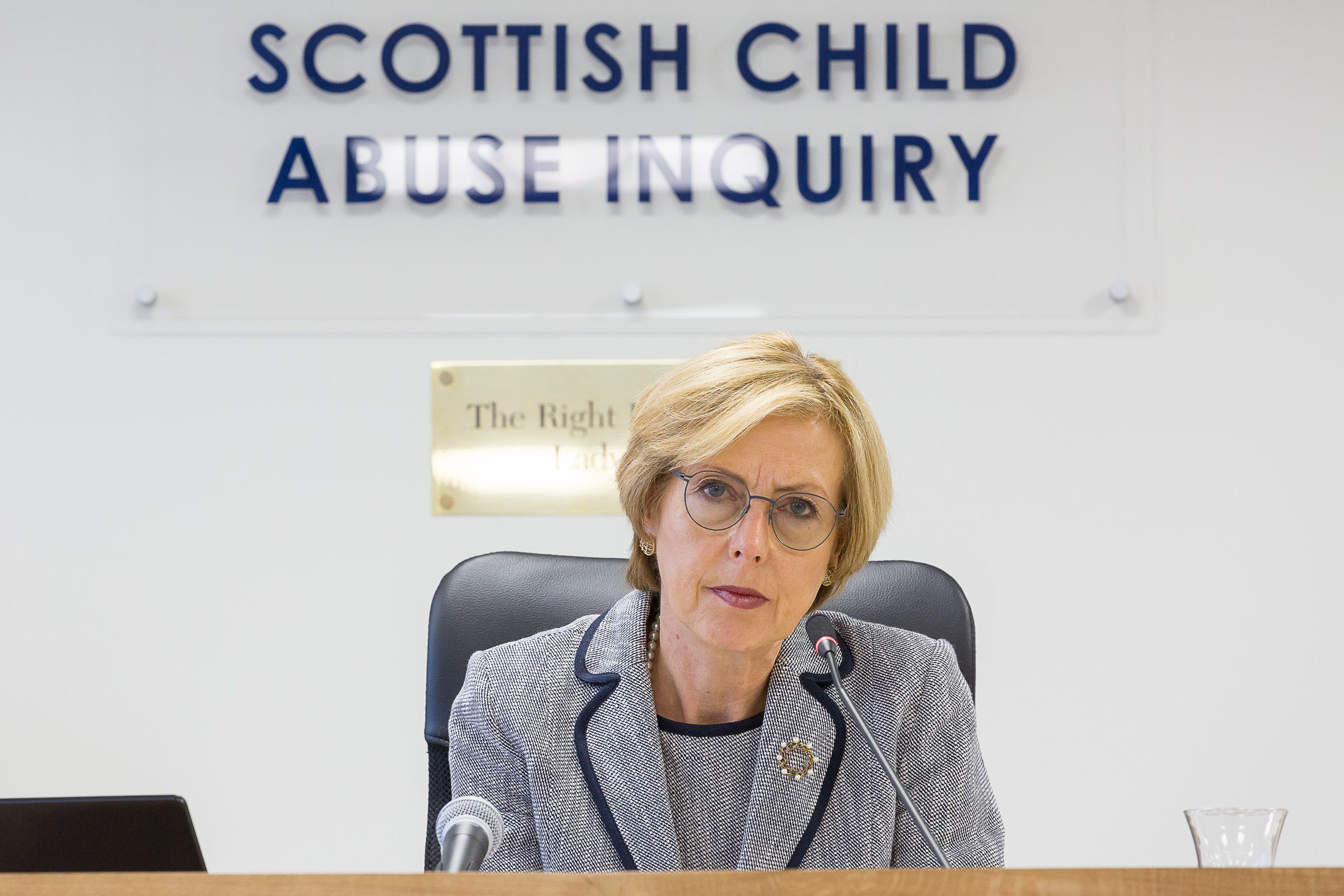Fostered children were abused throughout Scotland over 84 years, inquiry told
Public hearings for the Scottish Child Abuse Inquiry foster care case study concluded on Thursday.

Your support helps us to tell the story
From reproductive rights to climate change to Big Tech, The Independent is on the ground when the story is developing. Whether it's investigating the financials of Elon Musk's pro-Trump PAC or producing our latest documentary, 'The A Word', which shines a light on the American women fighting for reproductive rights, we know how important it is to parse out the facts from the messaging.
At such a critical moment in US history, we need reporters on the ground. Your donation allows us to keep sending journalists to speak to both sides of the story.
The Independent is trusted by Americans across the entire political spectrum. And unlike many other quality news outlets, we choose not to lock Americans out of our reporting and analysis with paywalls. We believe quality journalism should be available to everyone, paid for by those who can afford it.
Your support makes all the difference.No part of Scotland was “immune” to abuse of children in foster care over more than eight decades, an inquiry has heard.
The Scottish Child Abuse Inquiry (SCAI) has been told of physical, sexual, psychological and emotional abuse, neglect and exploitation since public hearings for the foster care case study opened in May.
More than 250 witnesses gave evidence, with many having the opportunity to share their experiences for the first time.
Inquiry chairwoman Lady Smith on Thursday concluded the public hearings, which examined both the abuse of children in foster care and of children who were boarded out.
Ruth Innes KC, lead counsel to the Inquiry, said: “The evidence which has been gathered and heard in this case study has sadly demonstrated that over the period from 1930 to 2014, children have suffered abuse in boarding out and foster care.
“That is not restricted in geographical scope – no area of Scotland is immune.
“We heard of physical, sexual, psychological and emotional abuse, neglect and exploitation.”
The inquiry team recovered more than 40,000 relevant documents and heard evidence from experts, local authorities, independent fostering agencies, foster carers, family members and social workers.
It was able to confirm more than 50 convictions in respect of offences against children in foster care, but said that record is incomplete.
Evidence gathered by the SCAI also identified a number of key themes including that children were often separated from their family and siblings, and that many believed their carers were motivated by personal financial gain.
It found that widespread failures in record-keeping exposed children to the risk of abuse as there was no ability to trace patterns of behaviour, and that some children were thrown out of the foster home and not spoken to again when their care concluded.
Many local authorities and organisations made general apologies in the course of this case study.
The inquiry also heard evidence of deaths in foster care not being properly investigated by the authorities, and that fatalities were accepted as accidents.
Lady Smith will now consider all the evidence and issue her findings as soon as practicable
The inquiry, which aims to raise public awareness of the abuse of children in care, is considering evidence up to December 17 2014, and which is within the living memory of any person who suffered abuse.